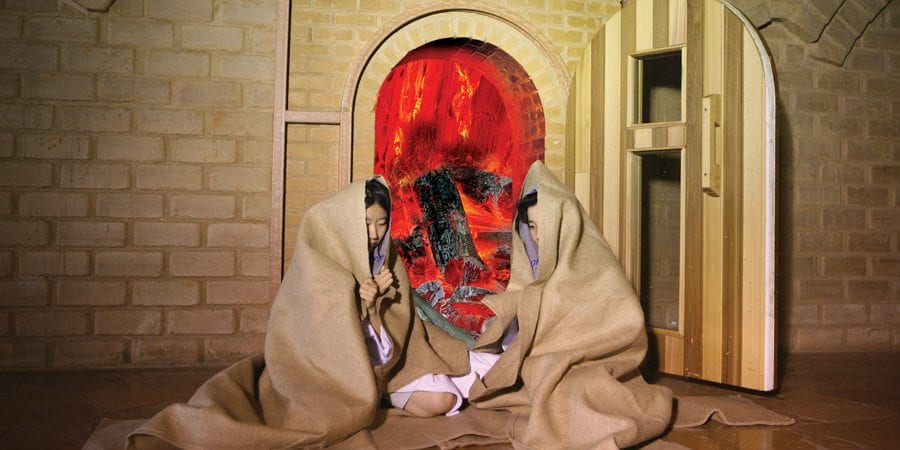One of the most unique ways to de-stress or pamper yourself in Seoul is visiting the Korean jjimjilbang (찜질방). It’s also a foolproof way to escape the cold nights in the city, particularly during winter.
It’s a standard part of Korean culture, and many Korean dramas and variety shows have given foreigners a primer on what to expect, but for first-timers and foreigners who have zero background, the experience can be a little overwhelming or shocking.
If you’re curious about what you can see or do in these famous leisure activities and how different it is from saunas and bathhouses in other parts of the world, here’s a list of things you need and would want to know:
1. No Shoes Allowed!
As is custom in many Korean homes, you will be asked to take your shoes off before entering the locker rooms and saunas.
There are usually separate lockers for shoes in the middle of the reception desk and the main locker rooms, and guests walk all around the jjimjilbang barefoot. You will be provided a smock and a couple of small towels after checking in.
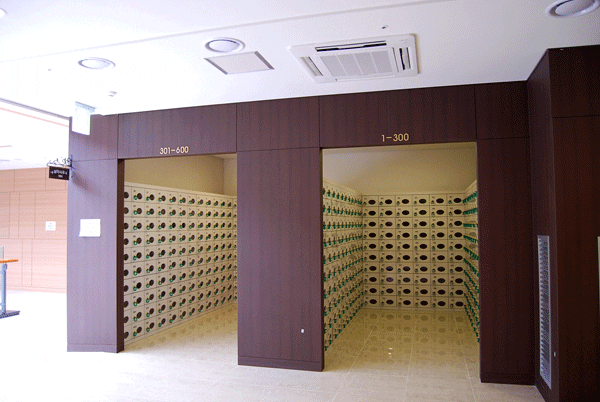
2. Take It Off!
When you get to the locker room, don’t be surprised to see guests toting their mini towels, drying their hair, or applying moisturizers—all while butt naked. Don’t worry—the locker room (and bathhouse) for males are separated from the one for females.
You must remove your clothes before entering the bathhouse; you can do this in the locker area. Store the smock in your locker for later use, but bring your towels to dry yourself after the shower or bath.
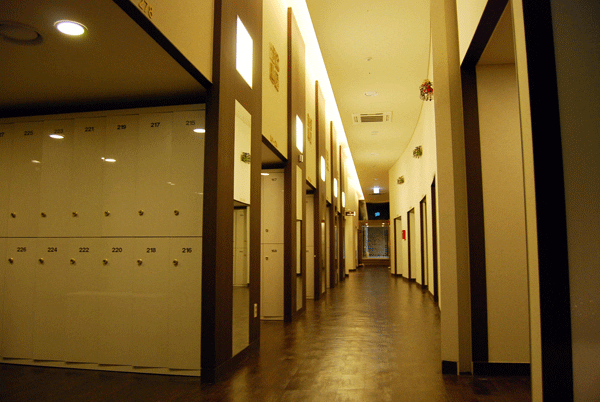
Believe us, it’s such a common practice in Korea to get nude in the bathhouses that people don’t really have sexual connotations or judgments. Plus, some ajummas (Korean aunties) will scold you if you get caught going to the bathhouse in clothes, so it’s best to just strip.
3. Get Scrubbing
You will need to take a shower before dipping into the pools. Same goes if you went in one of the dry saunas or the steam rooms. In some bathhouses like Siloam Sauna, salt scrubs are also available, so you can exfoliate.
You can bring your own toiletries (and scrubbing mitts if you want) or buy in-house (they’re sold at convenience store prices).
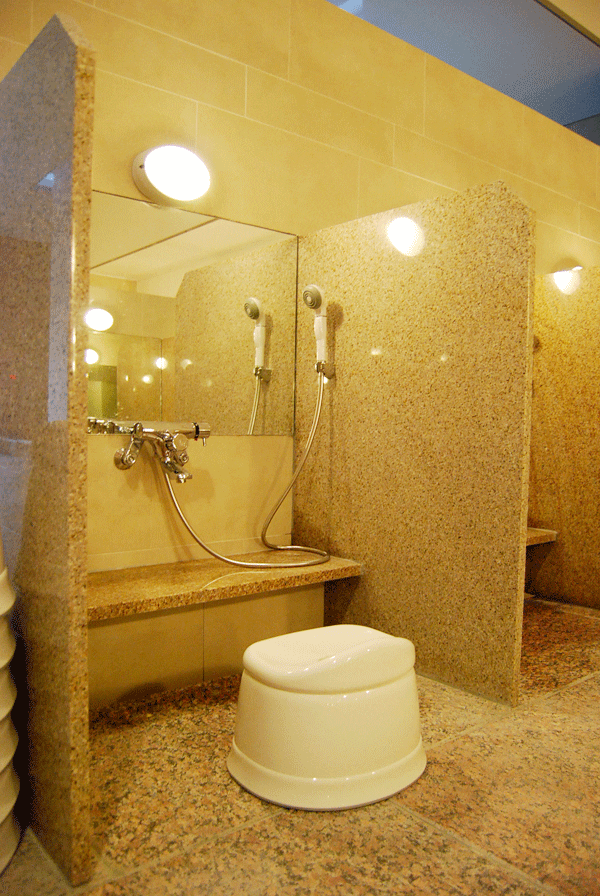
If you’re too tired to scrub yourself or if you simply want the ultimate exfoliating experience (AND if you’re brave enough for it), get a body “mega-scrub” from the ajummas and ajeossis (Korean uncles).
These staff members usually the only ones clad in lingerie or underwear in the bathhouse, and you can spot them in a secluded area with padded tables (similar to massage tables).
This is an add-on service that costs around KRW 20,000. (Tip: You can also have this done after soaking, so your skin is already super soft and exfoliating is easier).

4. The Heat Is On
After showering, you can start hopping from one heated pool to another. The Korean jjimjilbang is famous for its medicinal soaking baths, so be sure to keep an eye out for the pool that suits your needs.
You can spot baths with various degrees of heat and different stones or herbs. Go for ginseng for stress relief and memory improvement. You can also look for mugwort to help with pains and blood circulation problems.
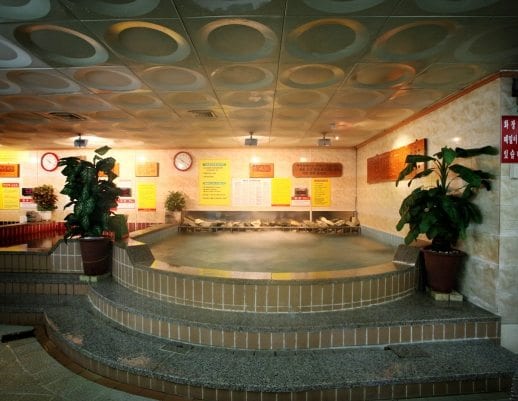
You can also look for hinoki wood, which improves lots of things from arthritis and headaches to skin irritations (Dragon Hill Spa has an outdoor pavilion with hinoki wood).
Some hydrotherapy jets are also available in most bathhouses, so you can soothe your sore muscles. You can end your 5 or 10-minute soaks with a cold shower or a quick dip at a cold pool to maximize the benefits.

To properly use each bath, look for the easy-to-follow instructions in English (along with the Korean versions).
5. Chambers of Secrets
After towelling yourself dry and changing into the provided smocks, you can then proceed to the saunas. They are the highlight of each jjimjilbang (the word literally means ‘heated room’ in Korean).
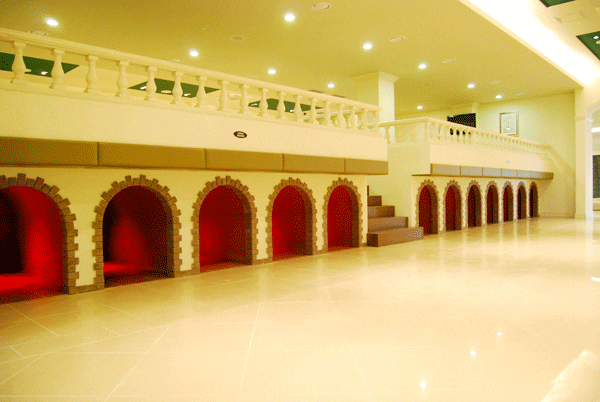
There are plenty of kilns and special rooms to choose from. You can try the high-temperature saunas to detox your body. You can also enter the thermal chambers with salt crystals, jade, or loess balls for additional health benefits.
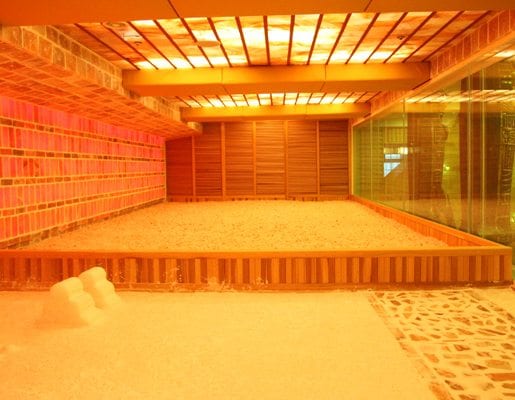
For instance, you can try the “Atopy treatment room” in The Spa at Garden5, which makes use of cypress leaves that help with allergies and other immunity problems. There are also cool rooms when you’ve had enough of the heated rooms.
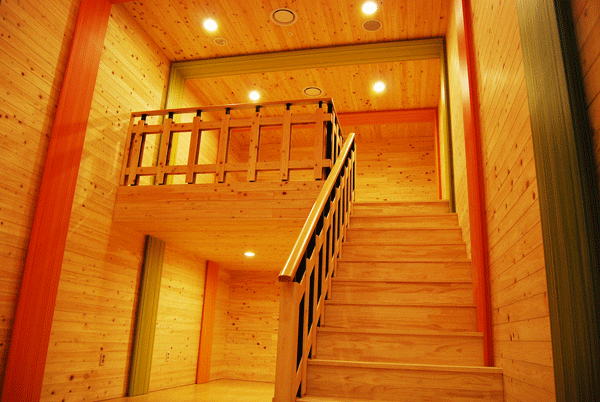
In these chambers (and in the other auxiliary facilities), you will likewise spot guest donning face masks and sporting the Korean jjimjilbang head towels, as is custom in these saunas.
You’ll also spot guests snacking on hard-boiled eggs (what makes them special is that they’re cooked in the saunas) and sipping on cold sikhye (식혜), the traditional Korean sweet rice punch. Feel free to blend in!
6. Deluxe Spa Services
If you want to splurge and pamper yourself, you can get various spa services in the Korean jjimjilbang. You can get massage therapies and acupuncture. You can also get waxing services and nail art sessions if you wish.
Women can also get “vaginal facials” or steam baths for the intimate area in some luxury spas. If you’re in Dragon Hill Spa, it’s called “Imperial Oriental Medicine Hip Bath”. The service claims to help improve hip and menstrual problems.
7. Catch Some Zs
These saunas have designated sleeping rooms if you need or want to spend the night. Usually, you can stay up to 12 hours or until noon the next day if you get the night pass.
(Tip: Siloam Sauna has a separate sleeping room for snorers. Stay in this sleeping area if you snore a lot! Just think of the other guests who just want to relax with some peace and quiet)
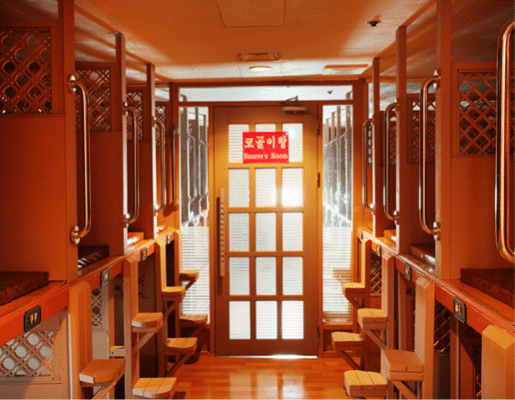
The sleeping rooms are segregated, too, but you can still spend the night with your family members or friends of the opposite gender. You can usually find common areas where you can pull a mat and sleep together.
8. Eat, Drink, Have Fun
Luxury jjimjilbangs have all the other facilities you could need. There are in-house Korean restaurants and snack bars if you get hungry. The restaurant at The Spa in Garden5 even lets you enjoy a high-altitude view of the city.
There are free water stations in some saunas (like Siloam Sauna), so you won’t get dehydrated even if you sweat a lot. There are also entertainment halls, gyms or fitness rooms, and even arcades with karaoke rooms or noraebangs (노래방).
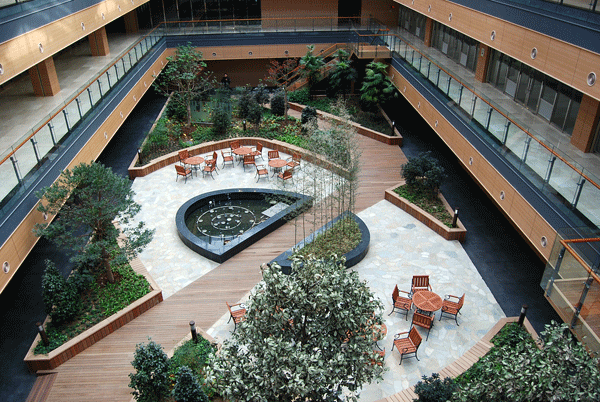
Fair warning for sensitive guests: The Korean jjimjilbang is not for germaphobes. Don’t get us wrong—the ajummas are pretty efficient (borderline OC) when it comes to sprucing up the facilities. However, you might still not enjoy the bathhouse if you hate the idea of soaking with strangers.
Some much-hyped jjimjilbangs can be pretty crowded, too, especially on weekends when both tourists and locals flock to the saunas. You’ll see groups of friends, work colleagues, families, and intertwined couples cuddling all night.
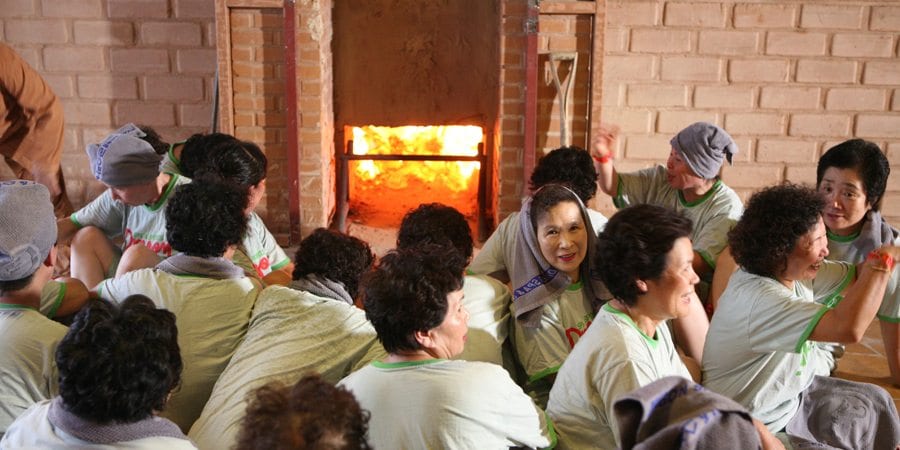
Don’t let discourage you from the unique experience, though! For about KRW 20,000 or less, the Korean jjimjilbang is definitely worth your money.



